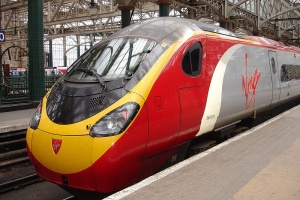Economic case for HS2 rail questioned in UK

The government has not yet made a convincing case for HS2 and must do so before parliament passes a bill to enable the construction of the first stage of the railway to begin.
This is the conclusion of the House of Lords Economic Affairs Select Committee, in a report published today.
The committee argues it supports transport infrastructure investment, but, at a cost of £50 billion HS2 will be one of the most expensive infrastructure projects ever undertaken in the UK.
The government sets two main objectives for HS2: increasing capacity on the railway and rebalancing the economy but, concludes the report, it fails to make a convincing case for either.
Full information on railway usage has not been made publicly available by the government, on the grounds of commercial sensitivity.
The evidence shows that long distance trains arriving at and departing from Euston are, on average, just 43 per cent full and even during peak times are only between 50 and 60 per cent full.
Overcrowding is largely a problem confined to Friday evenings and weekends on long-distance trains and to London-bound commuter trains.
There are less expensive options to remedy these problems than HS2 but these have not been properly reviewed.
The committee agrees with the objective to rebalance the economy but disputes the claim that HS2 is the way to achieve it.
The evidence from other countries, such as France, shows that the capital city is the biggest beneficiary from high speed rail.
Therefore, London would most likely be the biggest beneficiary from HS2.
The committee argues there is a strong case for improving the trans-Pennine links or building the northern legs of HS2 first, both of which could be a better way of rebalancing the economy than building the southern leg of HS2.
On cost, the Committee says that the cost per mile of HS2 is estimated to be up to nine higher than the cost of constructing high speed lines in France.
The committee suggests that, if HS2 is to go ahead, the cost could be reduced by building it to run at 200 mph, as in Europe, instead of 250 mph, terminating the line at Old Oak Common or learning lessons from France to reduce the cost of construction.
Commenting, Lord Hollick, chairman of the House of Lords Economic Affairs Committee said: “At £50bn HS2 will be one of the most expensive infrastructure projects ever undertaken in the UK but the government have not yet made a convincing case for why it is necessary.
“The committee are supportive of investment in rail infrastructure, but are not convinced that HS2 as currently proposed is the best way to deliver that investment.
“The government are basing the justification for HS2 on two factors – increased rail capacity and rebalancing the UK economy; we have not seen the evidence that it is the best way to deliver either.”

